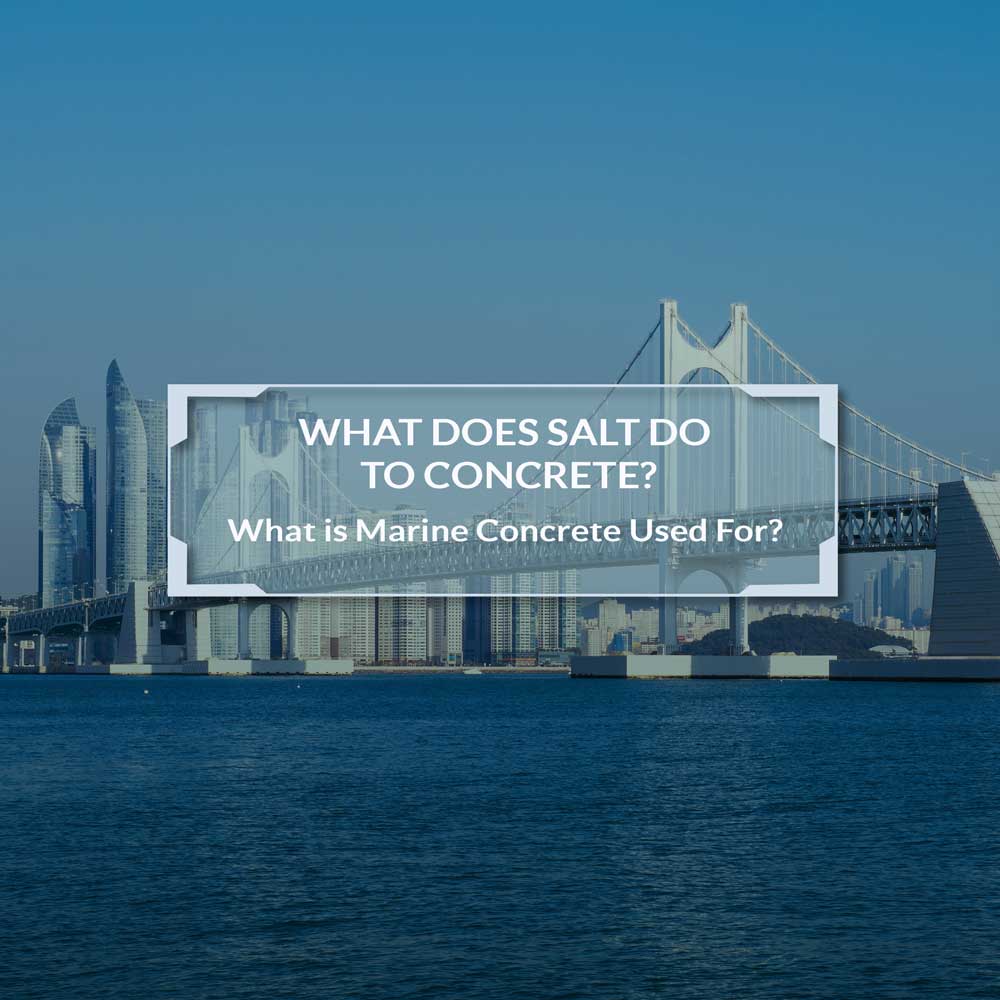Concrete that is used in marine settings must withstand very harsh and extreme pressures from the environment. That concrete must withstand agents that may be corrosive. These agents can begin to eat away at steel which will cause the structure to break down and eventually fail. Other environmental pressures are strong and constant waves hitting the structure. Marine structures must be strong enough to handle both the strong waves constantly hitting the concrete, as well as corrosion that may cause it to weaken.
Table of Contents
What is corrosion?
Corrosion is the breaking down of a metal by a chemical reaction. Some of the causes of corrosion are chloride, sea water, airborne chlorides, and carbon dioxide. Corrosion forms rust which in turn causes the concrete surface to become weaker and more vulnerable to the harsh environments. Concrete is specially susceptible to excessive moisture and chlorides, both of which exist heavily in the sea. This means that marine concrete must be specifically tailored and cared for so that it may be durable and long lasting.
What Does Salt Do To Concrete?
Many structures near salt water can be affected by salt in many ways. Wind carries salt particles that can affect concrete structures. Seawater and salt causes a chemical reaction with the cement in the concrete which will result in damage to the structure. The breaking down of concrete by seawater is mostly because of leaching or expansion of the concrete, or a mix of both. When seawater gets inside the pores of concrete, corrosion will occur and it will affect the durability of structure.
What is Marine Concrete Used For?
Marine concrete can be used for many different projects that are near sea water. Some of these projects are retaining walls that keep sea water out, structures that float on top of sea water, decks, and boat ramps. Marine concrete can also be used for roads and buildings that are near the ocean, as well as aquariums that hold sea water. Marine concrete is mainly used in sulphate-rich environments where salt will be an issue for existing concrete structures.
Why Marine Concrete?
When concrete for a project is going to come in contact with salts or salt-like solutions, analytical surveys must be completed. By using Marine cement, concrete structures will be more durable and long lasting. The composition of marine cement is created specifically to withstand the harsh environment created by that environment.
To improve the durability of Marine concrete, there are a few things that could be done. These projects need to consider using concrete with low water to cement ratio. Concrete with low water to cement ratio will minimize the size of the pores which will prevent expansion. Also, ensuring that the mix used for the concrete contains no chloride to reduce the likelihood of corrosion.
Another way to improve the durability is to ensure that there is good compaction in the concrete. This helps the concrete withstand against expansion as well. Using Pozzolanic materials while preparing the concrete is also good protection against salt water. Lastly, washing aggregates with fresh water to reduce any salt concentration from building up is important.


